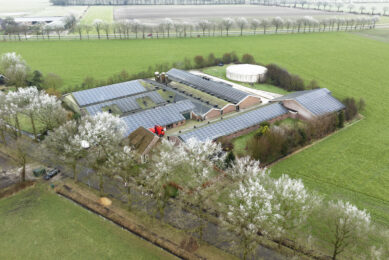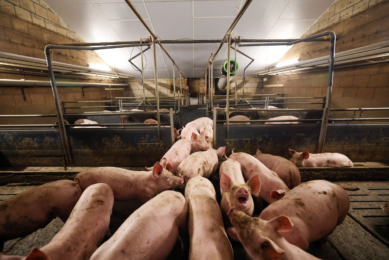A glimpse at the recent insect meal trials
![[Phono: Ynsect]](https://www.allaboutfeed.net/app/uploads/2020/12/001_391_rb-image-2798834.jpeg)
The number of studies on the effect of insect protein in livestock is growing. Here is a summary of few.
Different animal species can be used to make insect meal, but mealworms, housefly and black soldier fly larvae are the most studies ones.
Although insect meal shows promise as a replacer of fish meal in aquaculture or soybean meal in livestock diets for example, the extra positive effects on performance and growth are not always there, as some of the studies have shown.
Aquaculture: fish meal versus insect meal
In 2015 the EU funded project PROteINSECT conducted fish feeding trials on 3,600 Atlantic salmon parr over an 8 week period using insect meal made from housefly larvae. The results indicated that as compared to parr reared on commercial diets, the common house fly larvae can provide a suitable meal which can be used to replace up to half of the fish meal without affecting fish performance or proximate compositions of the whole body. In addition, the defatted insect meal has potential to replace more than 50% of fish meal in salmon parr diets.
The company Ynsect in France looked at the effect of mealworm meal. They showed that a defatted insect meal (ynsect tmp-y465) could effectively replace 100% of fishmeal in the diet of juvenile rainbow trout with positive effects on the overall growth performance.
Another study, published in the Journal of Insects as Food and Feed, looked at catfish fed on a diet in which 50% of fishmeal was substituted with mealworm meal. The fish reached a final mean body weight significantly lower than that of fish fed on a fishmeal based diet. Specific growth rate showed a good value during the first month but then it decreased in both groups at the end of the second month, remaining at the end of the trial slightly higher in catfish fed on IM diet in comparison to those fed on FM diet.
Insect meal is just 1 of the new proteins showing promise as an alternative to soy in animal diets. For more research and articles on this topic see All About Feed’s New Protein section
Pigs: Healthy gut in insect meal fed piglets
PROteINSECT conducted pig feeding trials on 48 male castrated piglets over a 4 week period at concentrations of 2% crude insect meal and 1.25% extracted insect proteins. No significant differences in body weight, daily gain, feed intake and feed conversion ratios were observed in the insect meal fed group, compared to piglets reared on commercial diets. However, levels of good micro-organisms (Lactobacilli) were significantly higher in insect-fed piglets. No differences in levels of negative micro-organisms (Enterobacteriaceae and E. coli) were detected. In addition, insect meal and extracted insect proteins in the piglet feed created a healthy environment within the gastrointestinal tract of the animals.
A paper by the FAO describes a trial in which dried black soldier fly prepupae meal was fed to early weaned pigs as a replacement (0, 50, or 100%) for dried plasma (meal in the diet: 0% during phase 1, 2.5% during phase 2, and 5% during phase 3), with or without amino acid supplementation. Without amino acid supplementation, the 50% replacement diet gave slightly better performance during phase 1 (+4% gain, +9% feed efficiency). However, the 100% replacement diets did not perform as well as the control (overall performance reduced by 3 to 13%).
Poultry: 2% increase in carcass yield
Ynsect looked at the defatted insect meal and its effect on broilers. Over a period of 34 days in which broilers were fed a diet containing 10% of tmp-y265. The results showed great benefits: 2% increase in carcass yield (without mortality increase) and 15% less water consumed by broilers, which led to cleaner litter.
An Italian research team looked at the effects of mealworm meal in free-range chickens. They showed that the inclusion of the insect meal did not affect the growth performance, haematological or serum parameters. The morphometric and histological features were not significantly affected either, thus confirming that it can be used safely in poultry diets.
Poultry trials PROteINSECT conducted poultry feeding trials on 300 male Ross chickens over a 39 day period at concentrations of 2% crude insect meal and 1.25% extracted insect proteins in comparison with birds fed on commercial diets. The results indicated that no significant differences could be observed in animal performance.











